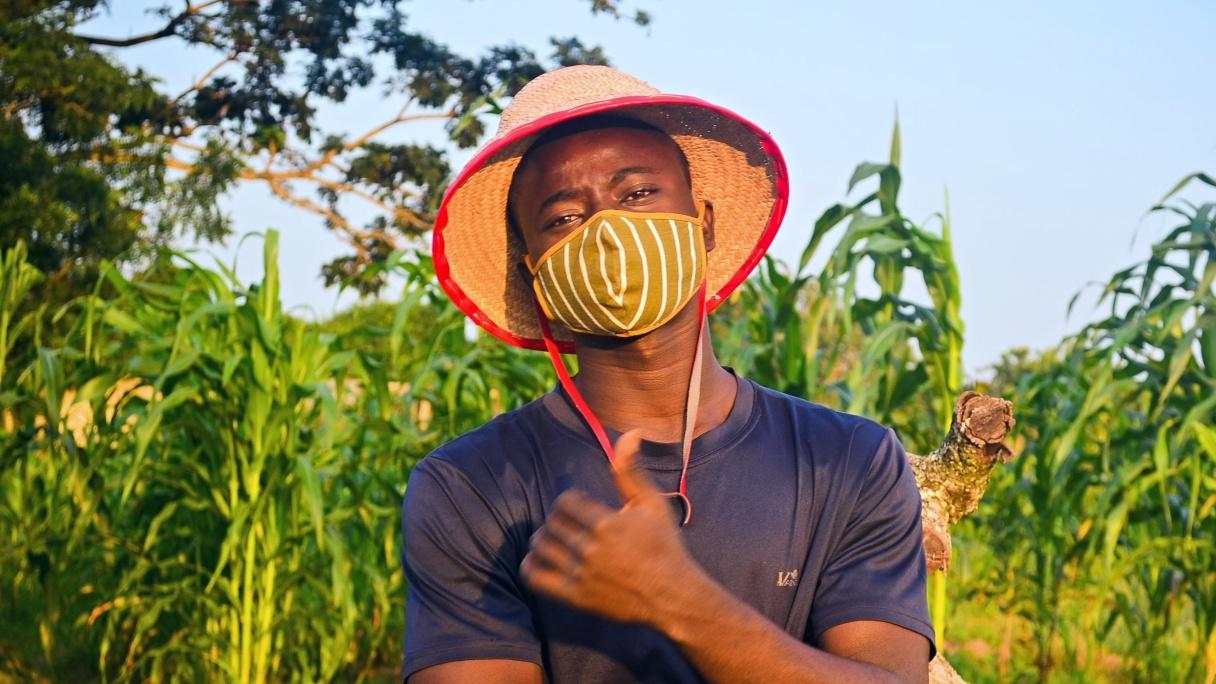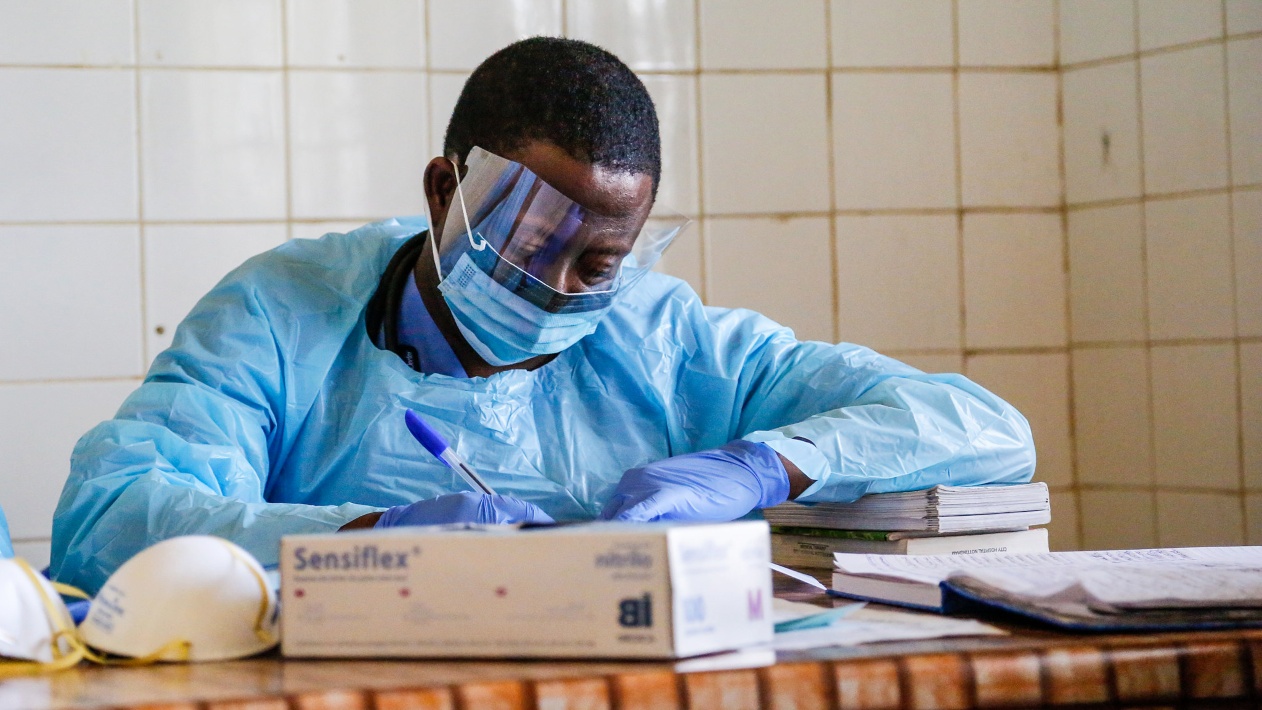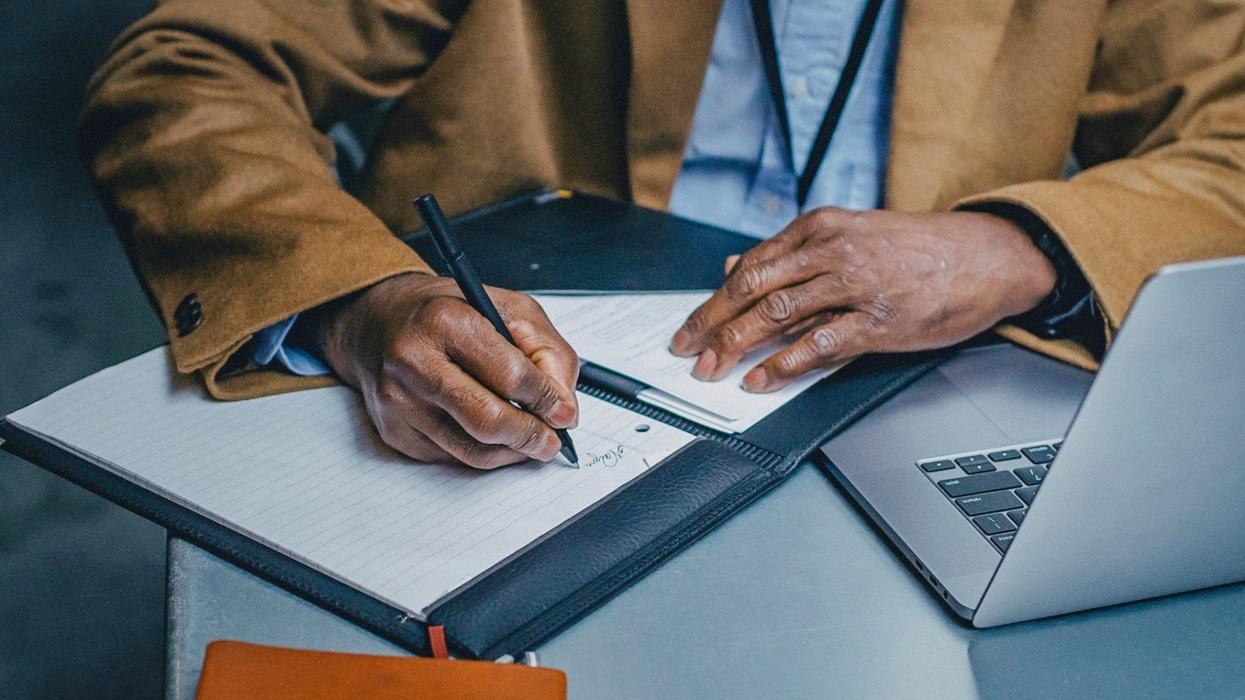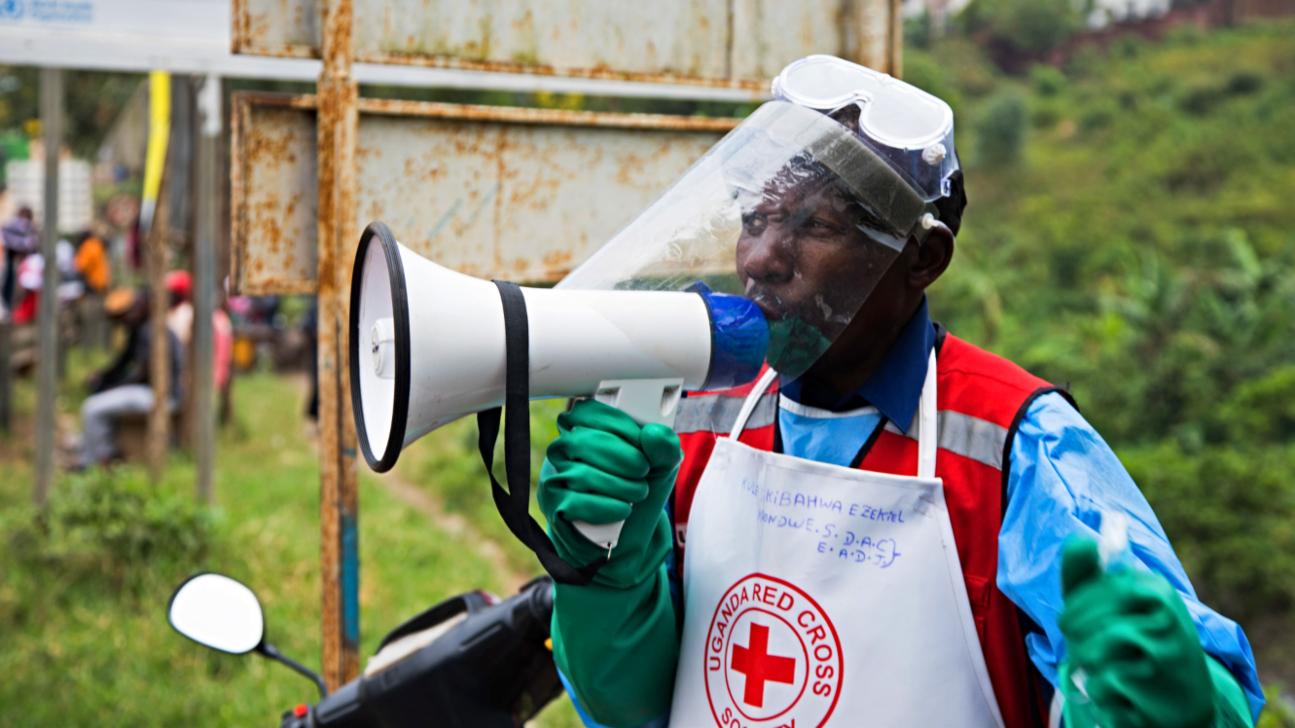Patrick Milabyo Kyamusugulwa is Director General of the Bukavu University Medical College, where he leads an institution of 4000 students and 180 staff. In this post he reflects critically on the variable impact of the COVID-19 pandemic on the DRC’s education system, the challenges his institution faced in response to government measures, and how these implications are further reflections of the country’s wider structural concerns.
Read the series COVID-19 pandemic stories from the DRC and Sierra Leone.
At the beginning of 2020, COVID-19 was locally understood as an outbreak of concern only for people in China and Europe. No one thought it would reach the Democratic Republic of Congo (DRC), especially the city of Bukavu located in the far eastern part of the country. When President Antoine Tshisekedi Tshilombo announced restrictive measures in response to COVID concerns, most people did not believe the virus had indeed arrived in the country. As a health professional, I was aware of the spreading of the disease across the globe, but I was also sceptical as to the extent to which people would adhere to the restrictions, given the level of disbelief among the local population.
For students, the closure of schools meant that all in-person instruction was immediately halted. All teaching and administrative activities were also stopped; university college buses ceased to run; and any staff or employee more than 60 years old was ordered to be on lockdown at home. At the university level, the Minister tried to push for an online education system; yet online instruction was impossible due to a lack of reliable internet connection and the necessary equipment at home for students as well as teaching staff. Many students decided to leave campus and return home, while dorms were closed, except for students whose parents lived outside the province.
Staff representatives, including myself, decided that initially administrative staff would perform a minimum of half a day service while all teaching activities stopped immediately. Two weeks later, all administrative activities would progressively end altogether. This resulted in the immediate loss of local income for teachers as well as administrative staff as, without students, there was no local income; therefore, the University College did not have funds to pay personnel. In the DRC, university fees enable the University College to pay regular wages to staff and pay for the functioning of the university and these payments are more reliable than the formal payment by the State. Not all staff are registered on the government’s payroll and it can take months, even years, to get a newly recruited staff registered, because the payroll is located at the Ministry of Finance in the capital Kinshasa. Under COVID-19, those who were not yet on the government payroll did not receive anything in the absence of student-generated fees.
To counteract this insecurity, we discussed the idea of creating a solidarity box to assist those staff who were now without payment. This idea was only accepted in theory, however, and in practice nothing was done owing to the low payments even paid staff were receiving, which was insufficient to meet one’s household needs, as well as a lack of willingness to assist. In other universities and university colleges, the personnel went on strike against the management of their respective universities because of the lack of payment, such as the University of Bukavu where staff were claiming three months of unpaid local wages.
One of my colleagues, Cyril, a visiting senior lecturer from the Anesthesiology Department based in the capital city Kinshasa, came to Bukavu in the wake of the country’s new restrictions. The management of the University College faced the challenge of whether to get Cyril back to Kinshasa immediately or to keep him in Bukavu, awaiting the re-start of academic activities. Part of the difficulty to return to Kinshasa was that all flights connecting the capital to other parts of the country were suspended. To get to Kinshasa, the only remaining option was by flight from Goma and only the United Nations could operate under special conditions, while flights by national companies such as Congo Airways were not allowed. Eventually an arrangement was made to hold in-person classes with his first-class Anesthesiology students, in full respect of following COVID barrier measures.
At the end of his two-week short intensive course and after three months waiting for a return flight in June 2020, the University College was able to negotiate a flight back to Kinshasa using a World Food Programme United Nations flight. That the flight would depart from Goma, a city separated from Bukavu by Lake Kivu, created another layer of difficulty; the government also restricted movement across the lake and no one could travel by boat from Bukavu to Goma and vice-versa without permission of the Governor of the province. Here too, we were able to secure such permission for Cyril. There is a concern, however, that these difficulties will have long lasting impacts on the college and the educational system in general. Many fear that high quality teachers will be more reluctant to return to Bukavu during future waves of the virus.
The pandemic has thus served to create additional uncertainties in people’s lives and expose existing uncertainties and inequities. Poor infrastructure, lack of educational investment, an inept registration process for educational staff to get on the government payroll, and the continuing exceptions held by NGOs and the United Nations in the region highlight that the effects of COVID represent far from a singular moment as it is often phrased. A common saying heard in the region is, ‘we are in the Congo and we are always poor’. In other words, the conditions here were not good before COVID, they were exacerbated under COVID, and they will continue to be significant issues after COVID.
Photo: University of Science of Kisangani, DRC. Ollivier Girard/CIFOR. Licensed under CC BY-NC-ND 2.0.





